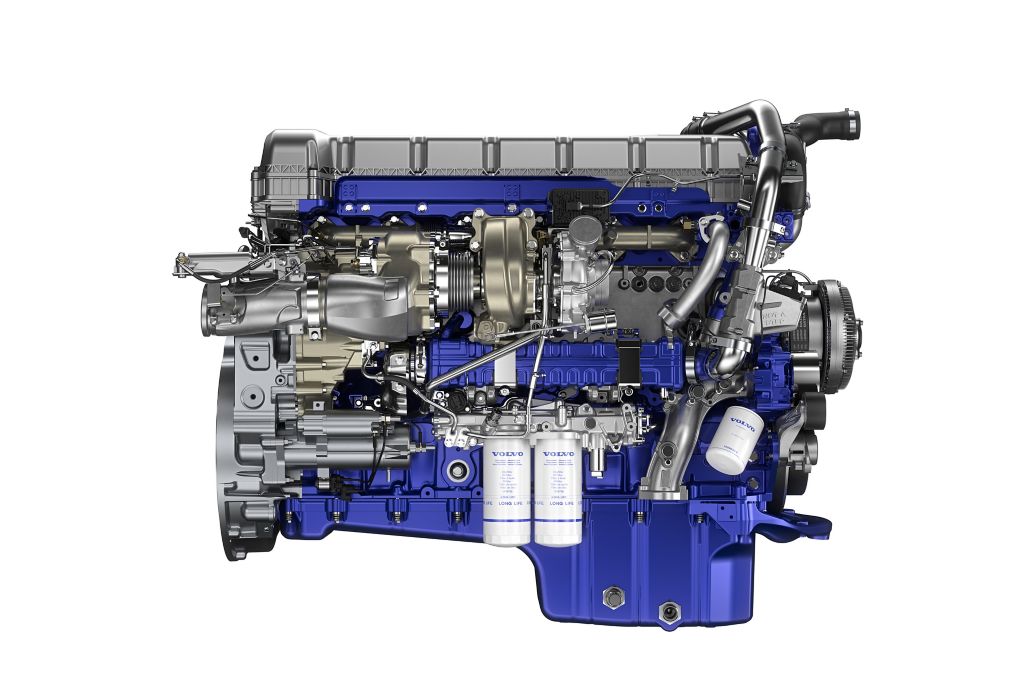With Continued North American Success, Volvo Truck's D13 Turbo Compound Engine Now Standard on All VNL Models


The D13TC engine is designed to minimize greenhouse gas emissions while enhancing fuel economy. In Europe and other key markets, the D13TC engine has exceeded expectations and has proven to be fuel efficient, reliable and popular with drivers. Confidence continues to grow among Volvo Trucks North America customers as orders increase following the next-generation release of the D13TC engine in 2020. Setting new industry benchmarks, the D13TC engine lessens the compromise between fuel efficiency and productivity.
For Volvo Trucks customers, fuel efficiency is crucial to running a successful business. In the Volvo VNL 740, 760 and 860 models, the new D13TC engine offers more fuel savings for a wider range of applications, such as long haul or local delivery, as well as fully or partially loaded. On average, the D13TC engine delivers improved fuel efficiency of up to 11% compared to 2015 Volvo truck models. Enhanced fuel efficiency options from Volvo Trucks like the Xceed package, available on the VNL 760 and 860, can include the FlowBelow Aerokit™ and other optimized exterior design features to deliver fuel efficiency gains as high as 16%.
“By making the D13TC engine standard in our VNL product line-up, we’re taking fuel economy and optimized performance to the next level,” said Johan Agebrand, director of product marketing at Volvo Trucks North America. “Environmental care is one of Volvo Trucks’ core values, so we’re proud of the success we’re having to reduce the carbon dioxide footprint for fleet operators while lowering their operating costs.”
Since the introduction of the first-generation D13TC engine in North America in 2017, fleet customers like Tom MacDonald Trucking, VTS Transportation and Tyson Foods have seen improved efficiencies. In fact, based on real-world fuel consumption testing performed by Volvo Trucks, fuel efficiency has increased more than the 3% originally projected. These companies and others, so impressed by the results delivered by the first-generation D13TC engine, have ordered the latest enhanced version, trusting that it will produce even greater fuel efficiency improvements.
VTS, based in suburban Sacramento, California, reports significant fuel savings for its fleet of 11 Volvo D13TC-powered VNL 760s, while Tom MacDonald Trucking cites outstanding improvements to its average miles per gallon and fuel costs. Additionally, Tyson Foods made the D13TC-powered Volvo VNL 740 the preferred tractor in its nationwide fleet.
Depending on the operation, the next-generation D13TC engine provides fuel savings up to 6%*compared to the 2020 Volvo D13 VGT engine. The new Turbo Compound engine improves emissions, reducing the overall carbon dioxide footprint while still maintaining high average transport speeds. Sustained transport speeds and improved reliability result in more efficient operations and increased revenue, while further boosting driver retention.
The new D13TC engine also provides optimized performance efficiency for a wide range of applications, including tanker, bulk haul and flatbed. Dynamic Torque, a feature standard on the D13TC engine, enables the vehicle to adjust to the exact load without impacting performance. Fleet operators benefit from the system’s versatility and the reduced impact of fuel price fluctuations, while drivers appreciate the responsiveness and uphill power.
“The engineering advancements built into the new D13TC engine reflect Volvo Trucks’ commitment to leadership in sustainable transport solutions,” added Agebrand. “Customers trust our brand to not only prioritize energy conservation and reduced emissions, but also provide a power source that does not compromise on performance.”
Growing demand for the Turbo Compound engine technology in North America comes on the heels of global success for Volvo Trucks, including high customer satisfaction in Europe. Among Europe’s long-haul operators, a vast quantity of the orders for the Volvo FH model are with the enhanced Turbo Compound engine.
Citing reduced fuel consumption, improved safety and increased driver comfort, Lithuanian-based Girteka Logistics invested in approximately 2,000 new Volvo FH trucks in a major fleet upgrade earlier this year, a portion of which feature the Turbo Compound engine. In addition, Italy’s Lannutti Group, after a year-long test showing significant fuel usage reductions, signed on for 1,000 new Volvo FH trucks in February of 2021, all of which were spec’d with the Turbo Compound engine.
For further information, please contact:
Jennifer Edwards
Public Relations Manager, Volvo Trucks North America
jennifer.edwards@volvo.com
336.392.9396